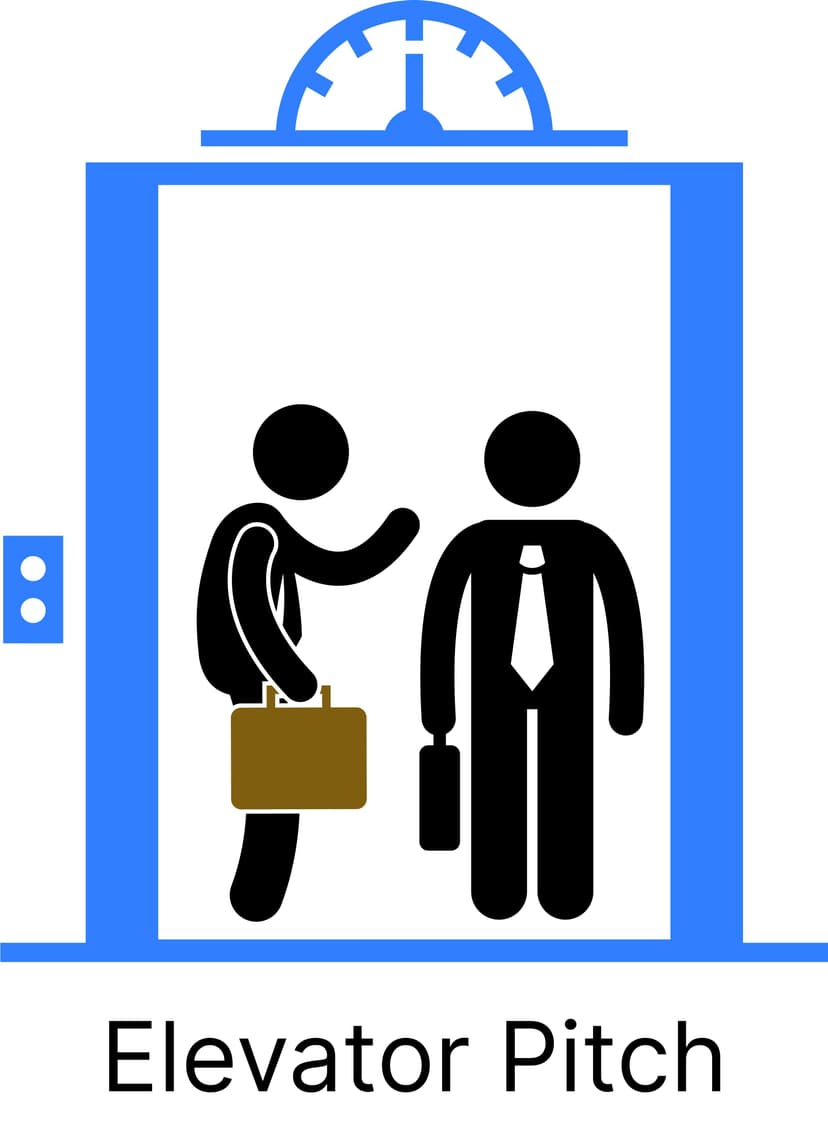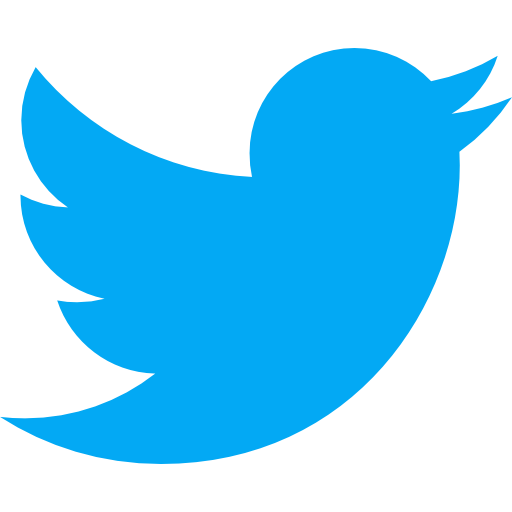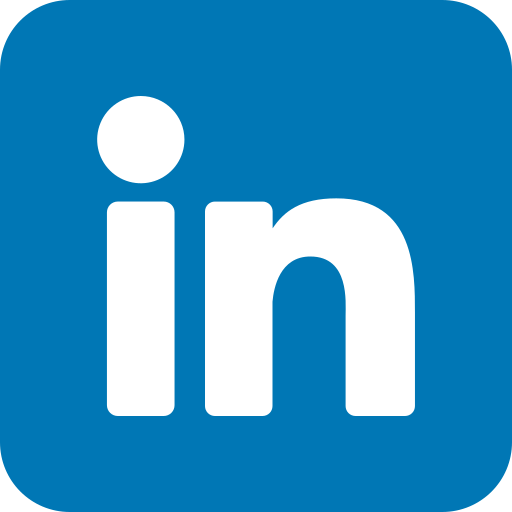Elevator Pitch

What is an elevator pitch?
Definition
An elevator pitch is a short, persuasive speech that is used to quickly and simply explain a product, service, or idea. It is called an "elevator pitch" because it is supposed to be the length of a short elevator ride, typically about 30 seconds to two minutes, and should be able to be delivered to a potential investor, customer, or client in the time it takes to ride an elevator.
Analogy
An elevator pitch is like a commercial for a product, service, or idea.
Just like how a commercial is a short, persuasive message that is used to quickly and simply explain the benefits of a product and persuade the viewer to take some action, such as buying the product or trying it out, an elevator pitch is a short, persuasive message that is used to quickly and simply explain the key points of an idea and persuade the listener to take some action, such as investing in a product or service, trying out a new idea, or considering a proposal.
Like a commercial, an elevator pitch should be engaging, compelling, and to the point, and it should be able to effectively communicate the key points of the idea in a short amount of time.
In other words
An elevator pitch is how you communicate your product, service, or idea in a concise 30-60 second pitch.
Why is an elevator pitch important?
It's one thing to know what an elevator pitch is, but that is worthless if you don't know why you should know what an elevator pitch is in the first place. Let's break down the importance of this tech term based on two high level categories. We'll walk through an explanation as well as provide a score, 1-10, that shows you how much you should care about an elevator pitch.
Pre-Product: 10/10
The first will be if you do not have a product yet. This means that you don't have a physical product. Maybe you're in the ideation phase, or maybe you're almost ready to start development. Whichever it is, we'll get into why an elevator pitch is important and why you should or shouldn't care about it if you do not have a product.
An elevator pitch is incredibly important regardless if you have a product or not. Your pitch is how you succinctly describe what you are working on, so it is important that you can articulate this clearly.
Live-Product: 10/10
The second category is if you do have a live product. Maybe you just launched your business or maybe it's been live for years and you're continuing to improve its quality. Regardless of the scenario, if your product is live, an elevator pitch carries a different weight.
If you have a product, your elevator pitch is still incredibly important because it will be how you communicate your product to potential investors, customers, etc.
Examples of an elevator pitch
So you know what an elevator pitch is, by definition. You know if you should care about it or not depending on your situation as a business/company/product. To dig in deeper, we will walk through some examples so we can make sure you really have a solid grasp on an elevator pitch.
We're going to walk through three example elevator pitches:
- A money-management mobile app:
Our company has developed a new app that helps people track and manage their daily expenses. By connecting to their bank accounts and credit cards, the app automatically categorizes their spending and provides personalized recommendations for saving money. The app is easy to use and helps people take control of their finances. We believe that this app has the potential to make a big impact on people's financial well-being, and we are looking for partners who share our vision. - A meal-delivery service:
We offer a subscription-based meal delivery service that provides healthy, pre-made meals to customers' doors. Our meals are made with fresh, high-quality ingredients and are designed to fit a variety of dietary needs. We make it easy for busy individuals to eat healthy and save time on meal planning and grocery shopping. In today's fast-paced world, we believe that our service can make a real difference in people's lives by helping them prioritize their health and well-being. - A new light-bulb:
Our company has developed a new type of energy-efficient light bulb that uses 75% less energy than traditional bulbs and lasts 25 times longer. The bulbs are affordable, easy to install, and can save households and businesses a significant amount on their energy bills. We are passionate about finding innovative solutions to reduce energy consumption and combat climate change, and we believe that our energy-efficient light bulbs are a step in the right direction. We are looking for investors to help us bring this product to market and make a positive impact on the environment.
Key Takeaways:
- An elevator pitch is a short, persuasive speech that is used to quickly and simply explain a product, service, or idea.
- An elevator pitch is incredibly important regardless if you have a product or not.

